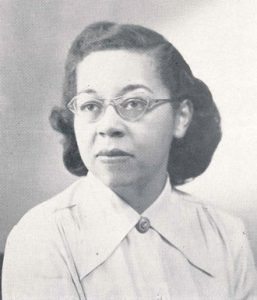Black History
COMMENTARY: Are we forgetting 400 years?
FLORIDA COURIER — This milestone 400th anniversary year of the single incident that began the relationship for the next four centuries among Africans, English, and Native Americans.
As Black History Month (BHM) 2019 begins, we might easily find ourselves simultaneously gratified, impressed, and nearly overwhelmed by the rich smorgasbord of programs and activities taking place in South Florida alone (diligently compiled by the Miami-Dade Office of Black Affairs and other sources).
This reflects a rapidly-growing availability of previously lost and hidden information steadily coming to light in this new day ‒ or what Native American First Nations people have recognized as a “Time of Awakening,” from which there is no escape or going back to past ignorance.
This year, for example, many are learning for the first time this year that February 1, the anniversary of the 13th Amendment officially ending legal slavery in the U.S. in 1865, is officially National Freedom Day, signed into law in 1948 by President Truman to celebrate the freedom enjoyed by all Americans. This is thanks to the dedicated efforts of Major Richard Robert Wright.
Pushed for recognition
Wright was born into slavery in Georgia in the 1850s. After a distinguished military career and numerous remarkable achievements in education and business, he launched his campaign in 1941 to establish the holiday – a fitting beginning of Black History Month.
However, just as this rapidly increasing knowledge and awareness might make this year’s BHM the most empowering ever, enhanced by the 2019 National Black History Theme of “Black Migrations,” there is a striking absence in virtually all of the programs listed on this full calendar of any reference to one of the most significant Black migrations of all time.
That is the fateful 1619 arrival from Ndongo, Angola, West Africa 400 years ago of the first “20 and odd” captive Africans to be brought into British-occupied Native North America, at Point Comfort, Virginia (not Jamestown, as is usually reported).
Their arrival notably occurred more than a year “Before the Mayflower” (the title of Lerone Bennett Jr.’s classic study of America’s Black history), but also more than a century after the first Africans of the modern era, free and enslaved, had come to the Spanish-claimed territory of Florida peninsula and other coastal settlements (including one which was destroyed by a slave revolt).
Note that there are much earlier documented African arrivals in the Americas centuries before Columbus, or the African presence among Indigenous peoples long before then.
More than one incident
In that larger historical and geographical context, the storied landing of a few Africans brought to a remote British North American outpost on the ship “White Lion” might seem to be almost insignificant, considering how commonplace such human trafficking had become since the early 1500s under Spanish and Portuguese flags.
(In case you didn’t know, the White Lion’s captain had stolen these same Africans from a Spanish vessel which he attacked and raided, and then sold the captives to the English settlers as commodity in exchange for food and supplies.)
That very point about context is convincingly made in Dr. Michael Guasco’s September 2017, article in Smithsonian magazine, cautioning against the dangers of overemphasizing the single 1619 incident at the expense of ignoring how much equally or more important history preceded, surrounded, and followed it.
Even without that caveat, other factors have already long been in play which serve to downplay the importance of those particular African men and women’s arrival in the Virginia colony.
On the one hand, many thoughtful observers astutely refuse to give undue importance to historical occurrences which become emphasized as parts of “his-story,” presented and defined by the settlers’ perspectives only.
On the other hand, there is also the inescapable factor of traumatic pain and unhealed psychic wounds associated with such stories which lead many African descendants to prefer not to be reminded of them, even though they continue to haunt our every hour ‒ whether we acknowledge them or not.
Knowledge empowers us
And that becomes the most important point today. “Knowledge is power,” and we are all certainly more empowered by knowledge of the collective history which has played such a prominent role in making us who we are today than by ignorance ‒ or worse yet, myths, lies, and propaganda ‒ calculated to disempower us.
This milestone 400th anniversary year of the single incident that began the relationship for the next four centuries among Africans, English, and Native Americans in North America is the ultimate “teachable moment,” an opportunity not to be missed, especially in this Time of Awakening when information abounds, and a new generation is coming of age as yet another is being born.
A quadricentennial only comes once. Only the present generations can gather and preserve historical facts that were either unavailable or too painful for those before us, and may well be lost and forgotten forever if we do not pass them on to those who come after us.
Among the most important facts of 1619 ‒ even more than knowing what those Africans and the millions who came after them, both on ships and as descendants for the next 400 years contributed to the building of the nation that we know today ‒ is the knowledge of who those first surviving Africans (like all others to follow) were.
What happened?
What did they feel upon their arrival in this strange place? How did they interact with one another and with the English settlers and the Native Nations which surrounded them? What indelible marks did their lives-that-mattered make on the society of which they were an integral part, regardless of what social status the settlers attempted to force upon them?
By going back to this beginning, without forgetting and by including that larger historical and geographic context around those 20-plus first Africans in British-occupied North America, we take full advantage of the proverb, “The past is present, the future is now.”
Yesterday is not tomorrow, which will be largely defined by what we do. As products of our ancestral past, what we do with our knowledge in the present moment shapes the future of our next generations.
This is why this milestone 400th year adds so much power and significance to all of our various inspired Black History Month and year-round activities. This is why each of these activities will benefit us and their audiences by including prominent public mention and recognition of this anniversary. Conversely, we will lose a precious and invaluable opportunity forever by not doing so.
***
Dinizulu Gene Tinnie is a South Florida-based artist, activist and historian. Click on this commentary at www.flcourier.com to write your own response.
This article originally appeared in the Florida Courier.
Activism
Oakland Post: Week of March 28 – April 1, 2025
The printed Weekly Edition of the Oakland Post: Week of March 28 – April 1, 2025

To enlarge your view of this issue, use the slider, magnifying glass icon or full page icon in the lower right corner of the browser window.
Activism
Report Offers Policies, Ideas to Improve the Workplace Experiences of Black Women in California
The “Invisible Labor, Visible Struggles: The Intersection of Race, Gender, and Workplace Equity for Black Women in California” report by the California Black Women’s Collective Empowerment Institute (CBWCEI), unveiled the findings of a December 2024 survey of 452 employed Black women across the Golden State. Three-fifths of the participants said they experienced racism or discrimination last year and 57% of the unfair treatment was related to incidents at work.

By McKenzie Jackson, California Black Media
Backed by data, a report released last month details the numerous hurdles Black women in the Golden State must overcome to effectively contribute and succeed in the workplace.
The “Invisible Labor, Visible Struggles: The Intersection of Race, Gender, and Workplace Equity for Black Women in California” report by the California Black Women’s Collective Empowerment Institute (CBWCEI), unveiled the findings of a December 2024 survey of 452 employed Black women across the Golden State. Three-fifths of the participants said they experienced racism or discrimination last year and 57% of the unfair treatment was related to incidents at work.
CBWCEI President and CEO Kellie Todd Griffin said Black women have been the backbone of communities, industries, and movements but are still overlooked, underpaid, and undervalued at work.
“The data is clear,” she explained. “Systemic racism and sexism are not just historical injustices. They are active forces shaping the workplace experiences of Black women today. This report is a call to action. it demands intentional polices, corporate accountability, and systemic changes.”
The 16-page study, conducted by the public opinion research and strategic consulting firm EVITARUS, showcases the lived workplace experiences of Black women, many who say they are stuck in the crosshairs of discrimination based on gender and race which hinders their work opportunities, advancements, and aspirations, according to the report’s authors, Todd Griffin and CBWCEI researcher Dr. Sharon Uche.
“We wanted to look at how Black women are experiencing the workplace where there are systematic barriers,” Todd Griffin told the media during a press conference co-hosted by Ethnic Media Services and California Black Media. “This report is focused on the invisible labor struggles of Black women throughout California.”
The aspects of the workplace most important to Black women, according to those surveyed, are salary or wage, benefits, and job security.
However, only 21% of the survey’s respondents felt they had strong chances for career advancement into the executive or senior leadership ranks in California’s job market; 49% felt passed over, excluded from, or marginalized at work; and 48% felt their accomplishments at work were undervalued. Thirty-eight percent said they had been thought of as the stereotypical “angry Black woman” at work, and 42% said workplace racism or discrimination effected their physical or mental health.
“These sentiments play a factor in contributing to a workplace that is unsafe and not equitable for Black women in California,” the report reads.
Most Black women said providing for their families and personal fulfillment motivated them to show up to work daily, while 38% said they were dissatisfied in their current job with salary, supervisors, and work environment being the top sources of their discontent.
When asked if they agree or disagree with a statement about their workplace 58% of Black women said they feel supported at work, while 52% said their contributions are acknowledged. Forty-nine percent said they felt empowered.
Uche said Black women are paid $54,000 annually on average — including Black single mothers, who averaged $50,000 — while White men earn an average of $90,000 each year.
“More than half of Black families in California are led by single Black women,” said Uche, who added that the pay gap between Black women and White men isn’t forecasted to close until 2121.
Alameda County
Trump Order Slashes Federal Agencies Supporting Minority Business and Neighborhood Development
The latest executive order targeted several federal agencies, including the Minority Business Development Agency (MBDA) and the Community Development Financial Institutions Fund, ordering that their programs and staff be reduced “to the minimum presence and function required by law.” The executive order targeted more agencies that Trump “has determined are unnecessary,” the order stated.

By Brandon Patterson
On March 14, President Trump signed an executive order slashing the operations of two federal agencies supporting growth in minority business and neighborhoods as he continued his attacks on programs supporting people of color and on the size of the federal bureaucracy.
The latest executive order targeted several federal agencies, including the Minority Business Development Agency (MBDA) and the Community Development Financial Institutions Fund, ordering that their programs and staff be reduced “to the minimum presence and function required by law.” The executive order targeted more agencies that Trump “has determined are unnecessary,” the order stated.
The MBDA’s mission is to “promote the growth and global competitiveness” of minority business enterprises, or MBEs. In 2023, according to its website, the agency helped MBEs access $1.5 billion in capital and facilitated nearly $3.8 billion in contracts awarded to minority business enterprises. It also helped MBEs create or sustain more than 19,000 jobs nationwide. Similarly, the CDFI Fund supports economic growth in under-invested communities by providing funding and technical assistance to local CDFIs, including banks, loan funds, and credit unions, that support community development projects in cities across the country. In 2023, the fund supported more than 1,400 local CDFIs across the country, including more than 80 in California — among the highest number for any state in the country.
The MBDA has local satellite business centers operated by organizations that support minority clients with services such as business consulting, contract bid preparation, loan packaging, and accessing capital funding. The San Francisco Bay Area business center is San Jose, operated by San Francisco-based organization Asian, Inc. Meanwhile, local Oakland CDFIs supported by the federal CDFI fund since 2021 include Habitat Community Capital, TMC Community Capital, Gateway Bank Federal Savings Bank, Beneficial State Bancorp, Inc., and Main Street Launch.
“It is clear that the hollowing out of the CDFI Fund and MBDA is not being ordered because those programs have failed in their mission,” the CEO of Small Business Majority John Arensmeyer, a national organization that advocates for small businesses, said in a statement on Saturday. “Instead, it is yet another case of President Trump using DEI as a club to eviscerate programs that seek to level our economic playing field.”
Congresswoman Lateefah Simon also slammed the decision in a statement to the Oakland Post. “As a member of the House Small Business Committee who represents multiple CDFIs in CA-12, I believe Trump’s gutting of operations at the Minority Business Development Agency and at the Community Development Financial Institutions Fund is a direct attack on small businesses, communities of color and other underserved communities,” Rep. Simon said. “Both the MBDA and the CDFI Fund were created with bipartisan support to help historically underserved communities and small businesses — and both programs have helped to dramatically change the material realities of people and bolster entrepreneurship in the U.S. There is no logic to this decision. The point is discrimination and cruelty.”
-

 #NNPA BlackPress4 weeks ago
#NNPA BlackPress4 weeks agoTarget Takes a Hit: $12.4 Billion Wiped Out as Boycotts Grow
-

 Activism3 weeks ago
Activism3 weeks agoUndocumented Workers Are Struggling to Feed Themselves. Slashed Budgets and New Immigration Policies Bring Fresh Challenges
-

 #NNPA BlackPress4 weeks ago
#NNPA BlackPress4 weeks agoBREAKING Groundbreaking Singer Angie Stone Dies in Car Accident at 63
-

 Activism4 weeks ago
Activism4 weeks agoOakland Post: Week of February 26 – March 4, 2025
-

 #NNPA BlackPress4 weeks ago
#NNPA BlackPress4 weeks agoNAACP Legend and Freedom Fighter Hazel Dukes Passes
-

 Arts and Culture4 weeks ago
Arts and Culture4 weeks agoBeverly Lorraine Greene: A Pioneering Architect and Symbol of Possibility and Progress
-

 #NNPA BlackPress4 weeks ago
#NNPA BlackPress4 weeks agoTrump Kicks the Ukrainian President Out of the White House
-

 #NNPA BlackPress4 weeks ago
#NNPA BlackPress4 weeks agoApple Shareholders Reject Effort to Dismantle DEI Initiatives, Approve $500 Billion U.S. Investment Plan
























































